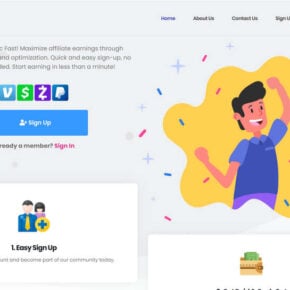Scams have become increasingly prevalent in the digital age, with scammers finding new and creative ways to deceive unsuspecting individuals. One such scam that has gained traction in recent years is the Virgin Airways ‘Complimentary First Class Flights’ Facebook survey scam. This article aims to provide a comprehensive overview of this scam, including what it is, how it works, what to do if you have fallen victim, technical details, and statistics to support the points made.

What is the Virgin Airways ‘Complimentary First Class Flights’ Facebook Survey Scam?
The Virgin Airways ‘Complimentary First Class Flights’ Facebook survey scam is a fraudulent scheme that targets Facebook users by promising them free first-class flights with Virgin Airways. Scammers create fake Facebook pages or posts that appear to be from Virgin Airways, enticing users with the opportunity to win these luxurious flights. The scam typically involves a survey or questionnaire that users are required to complete in order to qualify for the prize.
How Does the Scam Work?
The scam begins with a Facebook post or advertisement that claims to offer complimentary first-class flights with Virgin Airways. The post often includes enticing images of luxurious cabins and promises of an unforgettable travel experience. Users who click on the post are directed to a website or landing page that mimics the official Virgin Airways website, complete with logos and branding to appear legitimate.
Once on the fake website, users are prompted to complete a survey or questionnaire. The questions may vary, but they typically request personal information such as name, address, phone number, and email address. Some surveys may also ask for sensitive information like credit card details or social security numbers, claiming it is necessary for verification purposes or to cover taxes and fees.
After completing the survey, users are often asked to share the post or tag friends to increase the reach of the scam. This helps the scammers gain more victims and perpetuate the fraudulent scheme. In some cases, users may be redirected to another website that claims to offer additional prizes or discounts, further enticing them to engage with the scam.
What to Do If You Have Fallen Victim?
If you have fallen victim to the Virgin Airways ‘Complimentary First Class Flights’ Facebook survey scam, it is important to take immediate action to protect yourself and minimize the potential damage.
- Change your passwords: Start by changing your passwords for all your online accounts, especially if you provided any sensitive information during the scam.
- Monitor your accounts: Keep a close eye on your bank accounts, credit cards, and other financial accounts for any suspicious activity. Report any unauthorized transactions to your bank or credit card company immediately.
- Report the scam: Report the scam to the relevant authorities, such as your local law enforcement agency and the Federal Trade Commission (FTC). Provide them with as much information as possible, including screenshots of the scam posts or websites.
- Scan for malware: Run a scan with Malwarebytes Free or another reputable antivirus software to ensure that your device is not infected with any malware or viruses.
- Be cautious in the future: Learn from the experience and be more vigilant when engaging with online promotions or offers. Be skeptical of any too-good-to-be-true offers and always verify the legitimacy of the source before providing any personal information.
Technical Details of the Scam
The Virgin Airways ‘Complimentary First Class Flights’ Facebook survey scam utilizes various techniques to deceive users and appear legitimate. Some of the technical details of the scam include:
- Phishing websites: The scammers create websites that closely resemble the official Virgin Airways website, using similar logos, colors, and fonts to trick users into believing they are interacting with a legitimate platform.
- Social engineering: The scammers use persuasive language and enticing visuals to manipulate users into providing their personal information willingly.
- URL manipulation: The URLs used in the scam may be slightly altered to mimic the official Virgin Airways website. Users who do not carefully examine the URL may not notice the subtle differences.
- Malware distribution: In some cases, the scam may involve the distribution of malware or viruses. Users who click on certain links or download files from the scam website may unknowingly infect their devices.
Statistics on Facebook Scams
Facebook scams, including the Virgin Airways ‘Complimentary First Class Flights’ survey scam, have become a widespread issue affecting millions of users worldwide. Here are some statistics that highlight the prevalence of Facebook scams:
- In 2020, Facebook reported that it took down over 1.3 billion fake accounts, many of which were involved in scams and fraudulent activities.
- A study conducted by the Better Business Bureau (BBB) found that Facebook scams accounted for 30% of all reported online scams in 2020.
- According to a survey by NortonLifeLock, 1 in 10 Facebook users have fallen victim to a scam on the platform.
Summary
The Virgin Airways ‘Complimentary First Class Flights’ Facebook survey scam is a deceptive scheme that preys on unsuspecting users by promising them free first-class flights. The scam involves fake Facebook posts or advertisements that lead users to fraudulent websites where they are prompted to complete surveys and provide personal information. If you have fallen victim to this scam, it is crucial to take immediate action by changing passwords, monitoring accounts, reporting the scam, and scanning for malware. By being cautious and vigilant, users can protect themselves from falling victim to such scams in the future.



